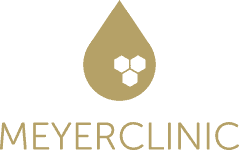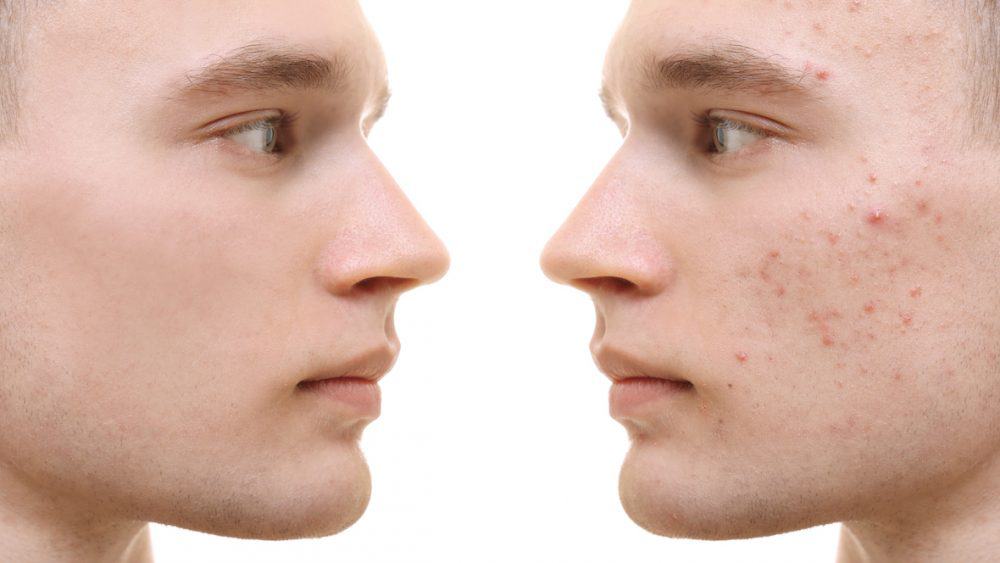During this period of lockdown many sufferers of acne are experiencing a worsening in their condition. This seems at odds with what one would expect from the benefits to acne-prone skin of this extended period of isolation. Skin is finally being given a breather from having to apply the daily layers of makeup and exposing it to pollution on your daily commute to school or work. With these obstacles removed, you could be forgiven for thinking that you’d emerge from this quarantine period with fresh, glowing skin. Unfortunately, for many, isolation skin is proving to be the exact opposite.
“The anxiety of being in lockdown coupled with eating the wrong kind of foods while at home 24/7 and not getting enough fresh air are just some of the factors that could be making break outs and flare ups worse,” explains Dr Annelize Meyer, skin expert and Medical Director of Meyer Clinic. “Although this time of isolation is allowing many acne sufferers the opportunity to allow their skin to breathe by going make-up free the negative impacts of lockdown sadly outweigh this for many sufferers.”
Here are Dr Meyer’s Tips For Managing Isolation Acne Flare-Ups
Exercise
It’s important to exercise daily. This not only helps to lessen anxiety – stress hormones play havoc with the skin – but also helps to reduce inflammation. Exercise gets the heart rate up and improves blood circulation. This in turn can help to deliver oxygen and nutrients to the skin which helps the skin stay healthy, promotes collagen production and promotes new skin cells which help the skin to glow.
“In addition, when we exercise we sweat which is the body’s way of clearing out impurities. This is great for clearing the skin, pores open up and excess sebum and dirt are removed naturally,” explains Dr Meyer.
Vitamin D
Inflammation can be a huge problem for skin – not only is it a major trigger for acne breakouts and eczema flare-ups, even in healthy skin it can cause swelling and redness. Well, it turns out vitamin D is involved in decreasing inflammation. The sun is the best source of vitamin D that’s why it’s important to get outside during lockdown. When your skin is exposed to sunlight, it makes vitamin D from cholesterol. The sun’s ultraviolet B (UVB) rays hit cholesterol in the skin cells, providing the energy for vitamin D to occur.
“Vitamin D has many roles in the body and is essential for optimal health,” explains Dr Meyer. “We know that people with vitamin D deficiencies appear to have higher levels of inflammatory markers which could potentially affect how their wounds heal. If your body isn’t able to repair any damage to your skin properly, this can have consequences, especially in people who suffer with acne and the scarring that can often be left as a result of the condition.”
Meditation
Many people in isolation are experiencing increased levels of stress and anxiety. Stress can have a serious impact on the skin, especially those suffering with acne.
“Stress won’t produce new cases of acne but it can exacerbate existing conditions,” explains Dr Meyer. “Cells that produce sebum have receptors for stress hormones. Sebum is the oily substance that mixes with dead skin cells and bacteria to clog the hair follicles, leading to pimple or acne cyst. When a person with acne experiences a lot of stress these sebum-producing cells become unregulated; more oil is produced to clod the hair follicles thus more acne is formed.”
A good way to reduce stress is to practice meditation. Just five or 10 minutes a day, taking time out to be still, is proven to reduce stress and anxiety. Following a daily meditation practice can re-balance the body and, therefore, the cells which regulate sebum production.
Some other self-care acne Dos and Don’ts from Dr Meyer:
Don’t over wash your face
Now that we are washing our hands more frequently to prevent the spread of coronavirus you may be tempted to wash your face at the same time. Don’t!
“Becoming over-zealous with face washing can strip the face of its natural oils,” explains Dr Meyer. “This can leave the skin dry, sensitive and red and cause an over-compensation of oil production, blocking pores and triggering break outs and flare ups of acne.”
Don’t be tempted to pick
Although you may be experiencing high levels of boredom from being in quarantine do not be tempted to pick at your spots to pass the time.
“Picking or squeezing spots can aggravate them, leaving a scar or worse, spread them even further,” says Dr Meyer. “If you feel tempted to pick, run and get an ice cube, place it in a piece of kitchen roll and gently dab it on spots, especially painful and inflamed ones. This can help reduce swelling; it also minimises your pores.”
Do follow a proper skincare routine
Okay, so we don’t advise constantly washing your face but it is important to maintain a good skincare routine. This should involve cleansing your skin and removing make-up with products specifically designed for the treatment of acne. Many of these need to be prescribed by a GP as they contain contain ingredients such as benzoyl peroxide and salicylic acid.
“There are lots of over-the-counter products that people can buy for acne but I always suggest that before any patient goes down that route that they have a proper consultation with a skin expert. I know it’s difficult to go to consult with a doctor now but if you are breaking out regularly, I would recommend doing a virtual consultation, that way you can be advised on the right products to be using and, equally as important, how to use them.”







Comments are closed.